A colony’s pain laid bare
The Last Colony: A Tale of Exile, Justice and Britain’s Colonial Legacy
Philippe Sands
£16.99, Weidenfeld & Nicolson
★★★★✩
Britain’s colonial past casts a shadow over this heart-rending case where the battlefield for justice shifts from a tiny island in the Indian Ocean to the International Court of Justice in The Hague. Professor Philippe Sands QC acted for Mauritius in relation to Peros Banhos, part of the Chagos archipelago that was severed from Mauritius and reincarnated as a new colony called the British Indian Ocean Territory (BIOT). The experiences of Liseby Elysé, a witness for Mauritius, who lived on Peros Banhos until she was 21, form the emotional core of this short, powerful book. ‘Without warning,’ Sands recounts, ‘one spring day she was rounded up by the British authorities, allowed a single suitcase, and ordered to board a boat that would transport her a thousand miles away.’ This drew Sands into her orbit, and a legal fight in The Hague to establish whether or not our last colony belonged to Mauritius or Britain. We learn of the agonising human dimension, involving ‘some 1,500 people, almost all Black and many descended from enslaved plantation workers, [who] were forcibly removed from their homes and deported’.
Sands covers the history leading to these flashpoints in The Hague, always with a sympathetic eye for the human toll. He recounts America eyeing up British-owned islands in the Indian Ocean for a new military base, and how the Privy Council made an Order in Council to establish the BIOT. By 1973, the Chagos population had been forcibly removed. Sands writes: ‘They left behind homes and possessions, furnishings and animals, and many dogs. The pets created another problem, a solution for which was found with bullets and strychnine.’ As for Elysé, ‘soon after we arrived [in Mauritius to resettle] I lost the child, my first. I suppose it was the trauma and sadness.’
Ultimately, the case boils down to what judges in the Great Hall of Justice decide, scenes painted with insightful detail. Before we reach that point, Sands explores other key cases. In 1966, Liberia and Ethiopia sought ‘to hold South Africa to account for its racial mistreatment of the inhabitants of South West Africa’ (Namibia) and ‘its refusal to allow the former British colony to become an independent country’. Despite The UN General Assembly adopting resolution 1514, which proclaimed a principle of ‘territorial integrity’, the International Court of Justice ruled that ‘Ethiopia and Liberia had no right to come to court to hold South Africa to account’. As Sands observes: ‘In the era of decolonisation, the judges were seen to strike a blow for colonial rule, leaving apartheid and discrimination in place’.
But the most compelling moments belong to Madame Elysé. Unable to read or write, she prepared a pre-recorded statement that was projected on large screens. ‘After [she] finished there was a long silence, as powerful as the words, then the sounds of tears,’ Sands relates.
A riveting story that reignites the embers of Britain’s colonial past.
Nicholas Goodman is a sub-editor at the Law Society Gazette
Saggerson on Travel Law and Litigation (7th edition)
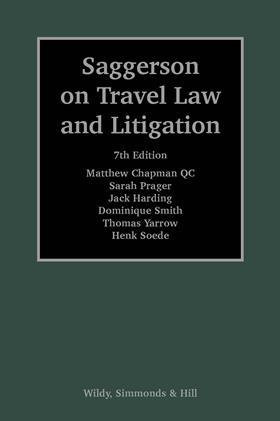
Matthew Chapman, Sarah Prager, Jack Harding, Dominique Smith, Thomas Yarrow, Henk Soede
£145, Wildy, Simmonds & Hill
This revised and updated edition offers guidance on the impact of Brexit on travel litigation and the rights of consumers to claim refunds amid the Covid pandemic. It also looks at the Package Travel and Linked Travel Arrangements Regulations 2018 and case law with regard to ‘accidents’ within the meaning of article 17(1) of the Montreal Convention.
Fire Safety Law: A Practical Guide for Leaseholders, Building-owners and Conveyancers
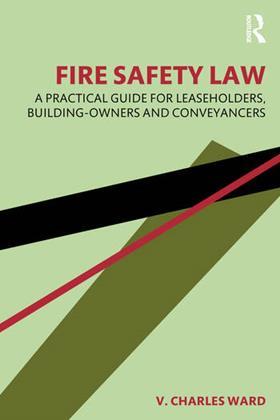
V. Charles Ward
£120, Taylor & Francis
V. Charles Ward offers a practical overview of fire-safety legislation relating to residential and commercial buildings. This includes not only the 2005 Fire Safety Order – as updated by the 2021 Fire Safety Act and the Fire Safety (England) Regulations 2022 – but also gas and electrical safety regulation and Building Safety Act 2022. The book is useful for anyone involved in the purchase or sale of a flat in a multi-occupied block.
Court of Protection Handbook: a user’s guide
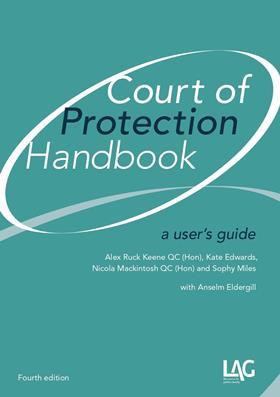
Alex Ruck Keene QC, Kate Edwards, Nicola Mackintosh QC and Sophy Miles with Anselm Eldergill
£75, Legal Action Group
Court of Protection Handbook addresses in detail the practice and processes of the Court of Protection in terms that are aimed not only at lawyers but also at the increasing numbers of people who are involved in proceedings before the court without legal help. It looks at making an application, funding and representation issues, and preparing for and appearing at hearings.
The Legal Team of the Future: Law+ Skills
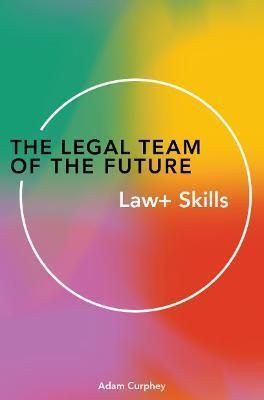
Adam Curphey
£25, London Publishing Partnership
This book presents as a guide to building the holistic skills required of those working in legal services. In highlighting the importance of multidisciplinary teams working collaboratively to solve legal problems, Adam Curphey introduces a ‘Law+’ model comprising 16 skills. He explains how to build those skills as an individual, a law firm, an in-house team, a university or a law school.























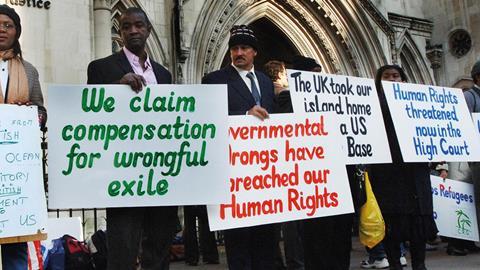








No comments yet